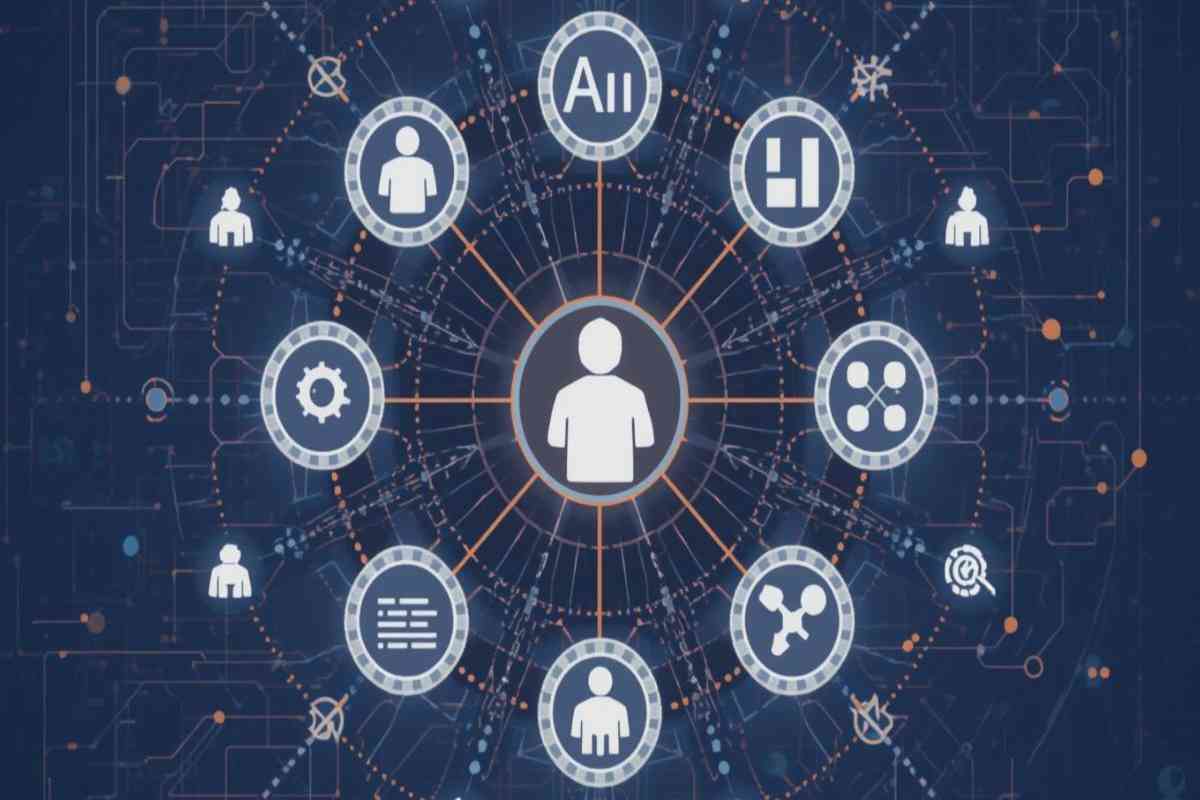
As artificial intelligence (AI) advances, it becomes evident that no singular approach serves as the ultimate solution for all tasks. Different AI techniques possess distinct strengths and weaknesses, and by integrating them, we can develop more potent and adaptable systems. In this blog post, we’ll explore various approaches that involve the collaboration of multiple types of AI.
Below table describe which type of approach describes multiple types of ai working together ?
| Approach | Description | Benefits |
| Hybrid AI | Combines symbolic and statistical AI for improved performance. | Improved accuracy, robustness, and flexibility. |
| Ensemble AI | Combines multiple AI models for improved accuracy and robustness. | Improved accuracy, robustness, and reduced bias. |
| Human-in-the-loop AI | Combines human and AI decision-making for tasks requiring human judgment. | Improved accuracy, robustness, and flexibility for tasks requiring human judgment. |
Hybrid AI
Hybrid AI systems merge symbolic AI, which operates on rules and logic, with statistical AI, which learns from data. This fusion allows systems to harness the advantages of both methods. For instance, a hybrid AI system might utilise symbolic AI to comprehend the fundamental structure of a problem and then employ statistical AI to determine the optimal solution.
Ensemble AI
Ensemble AI systems amalgamate multiple AI models into a unified system. Each model within the ensemble generates its prediction, and the final prediction arises from combining the outputs of all models. This method enhances accuracy and resilience in AI systems.
Human-in-the-loop AI
Human-in-the-loop AI systems integrate human and AI decision-making processes. Here, the AI offers a recommendation, but the ultimate decision rests with a human. This approach proves valuable for tasks requiring human judgement, such as medical diagnosis or financial decisions.
The Benefits of Collaboration which type of approach describes multiple types of ai working together
There are numerous advantages to utilising multiple AI approaches concurrently:
Improved Accuracy and Robustness: Combining diverse approaches yields systems with heightened accuracy and resilience compared to individual methods.
Greater Flexibility: Employing varied approaches results in systems that are more adaptable to diverse situations.
Reduced Bias: Utilising a range of approaches helps mitigate bias in AI systems. The Future of AI Collaboration
As AI progresses, we anticipate witnessing even more sophisticated collaboration approaches. These advancements will enable the creation of AI systems that are even more potent and versatile than current capabilities.


